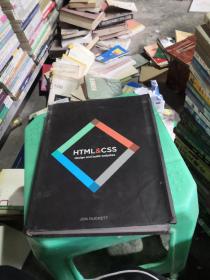
乔姆斯基:思想与理想(第二版)(国外语言学与应用语言学人大版影印文库)
¥ 13.88 4.0折 ¥ 35 八品
仅1件
重庆九龙坡
认证卖家担保交易快速发货售后保障
作者[英]史密斯(Smith)
出版社中国人民大学出版社
出版时间2009-01
版次1
装帧平装
货号b83
上书时间2024-11-01
- 在售商品 暂无
- 平均发货时间 10小时
- 好评率 暂无
- 店主推荐
- 最新上架
商品详情
- 品相描述:八品
图书标准信息
- 作者 [英]史密斯(Smith)
- 出版社 中国人民大学出版社
- 出版时间 2009-01
- 版次 1
- ISBN 9787300099750
- 定价 35.00元
- 装帧 平装
- 开本 16开
- 纸张 胶版纸
- 页数 282页
- 字数 318千字
- 【内容简介】
-
In this rigorous yet accessible account of Chomsky ' s work and influence, Nell Smith analyses Chomsky' s key contributions to the study of language and the study of mind He gives a ~led" and partly historical exposition of Chomsky ' s linguistic theorizing, and examines the ideas (such as deep and surface structure) for which he is best known. Smith discusses the psychological and philosophical implications of Chomsky s work, and gues that he has fundamentally changed the way we think of ourselves, gaining a position in the history of ideas on a par with that of Darwin or Descartes. Finally, he examines Chomsky' s political ideas and how these fit intellectually with his scholarly work. Smith argues that, despite Chomsky ' s own disavowal of any very close connection, there are fundamental ideas of rationality, creativity and modularity that draw together the disparate strands of his vast output. Throughout, Smith explores the controversy surrounding Chomsky's work, and explains why he has been both adulated and vilified.
This second edition has been thoroughly updated and revised to account for Chomsky's most recent work, including his continued contributions to linguistics (in particular new developments in the Minimalist Program), his further discussion on evolution, and his extensive work on the events of September 11,2001 and their aftermath. The bibliography and notes have been expanded to account for the rapidly growing secondary literature on Chomsky's work, as well as the many new works by Chomsky himself. It will be welcomed by students and researchers across the disciplines of linguistics, philosophy, cognitive science and politics, and anyone with an interest in the impact of Chomsky's work. - 【目录】
-
Preface to the second edition
Acknowledgments for the first edition
Introduction
Chomsky's achievement
On heroes and influences
1 The mirror Of the mind
Linguistics as a science
The nature of idealization
Common sense
Modularity
Double dissociation
Modules and quasi-modules
Intelligence and "learning"
Competence and performance
Competence and grammar
Rules
I-language and E-language
Performance, parsing, and pragmatics
Parsing considerations
Pragmatic considerations
Competence and performance versus I-language and E-language
Evolution and innateness
Language acquisition
Poverty of the stimulus
Word meaning
Universals
Natural language and the language of thought
Summary
2 The linguistic foundation
Introduction
Knowledge of language
The lexicon
Knowledge of structure
Knowledge of structural relations
Levels of representation
Constituents and rules
Deep structure
Description versus explanation
From rules of principles
The elimination of PS rules
X-bar theory
Government and Binding theory
Binding theory
Locality
Theta theory
Case theory and government
Empty categories
The status of transformations
Principles and parameters
Lexical and functional categories
Minimalism
Economy
The elements of Minimalism
Perfect syntax
A historical progression
Evolution
3 Psychological reality
Causality and observability
Psychological reality and the nature of evidence
Intuitions
Language processing
The derivational theory of complexity
Grammars and parsers
Parsing problems
Economy
Language acquisition (Plato's problem)
Teaching versus learning
Learning versus growing
Parameter setting
The critical period hypothesis
Maturation
Language pathology
Agenesis of the corpus callosum
The polyglot savant
Specific language impairment (SLI)
Connectionism: the behaviorists strike back
4 Philosophical realism: commitments and controversies
Commitments
Realism
I-language revisited
Representation and computation
Naturalism
Mentalism
Tacit knowledge
The mind-body problem
Controversies
Language and the world
Language and the community
Language and the individual
Problems of semantics
Innateness
Unification and reduction
Conclusions
5 Language and freedom
Explanation and dissent: the common threads
Relentless dissent
Common sense and theory
Rationality, modularity, and creativity
Rationality
Modularity
Malleability and plasticity
Creativity
The anarchist background
The Encyclopefistes
The critique of (American) foreign policy
Vietnam
East Timor
9-11: terrorism and the "war on terror"
The critique of domestic policy
Pig farming in Haiti
Drug trafficking
The critique of media control
Murder
Third world elections
The treason of the intellectuals
The technique of dissection
The exposure of warped perspective
The exposure of suppressed precursor events
The exposure of debased language
Moral absolutes and options for the future
The Faudsson affair
Islamic fundamentalism
Authority
The positive program
Conclusion
Envoi
Notes
Bibliography
Index
点击展开
点击收起
— 没有更多了 —
















以下为对购买帮助不大的评价